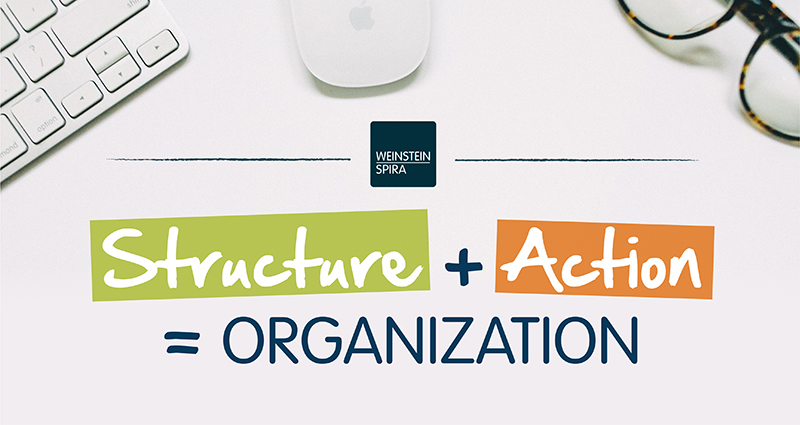Have you ever thought to yourself “there is so much to do and so little time”? If so, you are not alone. Everyone has had an overwhelming feeling at some point, but it is what we can do to overcome those feelings that make us successful.
The biggest contributors to being able to stay focused and get tasks done are organization and time management. These two skills tend to go hand in hand with one another, yet are still mutually exclusive. But how does someone learn to develop these skills? In order to master organization and time management, you must first understand what they are and what they mean.
Organization
There are two components to organization: structure and actions. Structure is the tools that are available to you. These include datebooks, outlook calendars, lists, file folders, and color-coding systems. However, all of the tools in the world are useless without the second component of action.
Action is the utilization of the tools you have to stay organized and on track. For example, you need to reference all of the lists that you make, actually use those calendars to make appointments and set time aside for certain tasks, and continue to use the file folders you spent so much time color coding. Without action, all the structure in the world will not help.
If you can get the basics of organization down, you can begin to reap the benefits immediately. Some of the best rewards include staying in control and lowering stress and frustration levels. You will begin to increase your productivity and efficiency and will find that you can even become a better communicator.
Time Management
While time management goes hand in hand with being organized, it is important to understand the distinction between the two. Sometimes, in order to become better at managing your time, you have to identify what are the current hindrances. For many people, procrastination and interruptions are the two factors that keep us from being successful time managers. You may also be setting the wrong priorities or not being realistic about how much you can actually take on.
A few tools for being better at time management are understanding what your goals are, setting realistic time limits for tasks and finding out when your “prime time” is. “Prime Time” is that special time of day when you are most effective. You may associate this with the type of person that you are (i.e. a morning person, a night owl, etc.). Whatever time of day you feel at your best should be the time that you tackle your most difficult or “time-consuming” tasks.
The biggest contributor to being successful at time management is to become an effective delegator. To delegate is to entrust another person, typically one who is less senior than oneself. The more tasks that you can delegate to others, the more time you will have to complete other tasks. For many people, delegation is hard because they don’t trust that anyone else can do it right. However, if you take a little bit of time up front and teach someone, you may be able to delegate future tasks to him or her as well. It is important to believe in others ability…they might surprise you!
If you can learn to develop these skills and become more organized through the use of tools and action, and can increase your time management skills, you can be successful at anything. So the next time you are feeling overwhelmed or like there are not enough hours in the day, take a minute, and a deep breath, and evaluate the above information. It might be simpler than you think.



